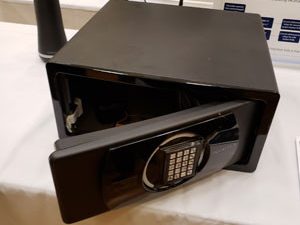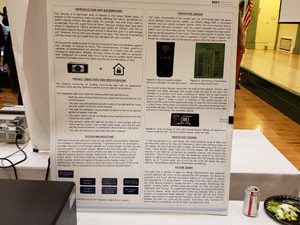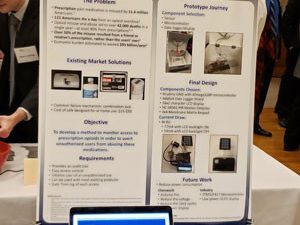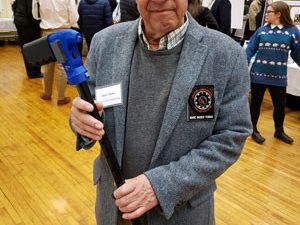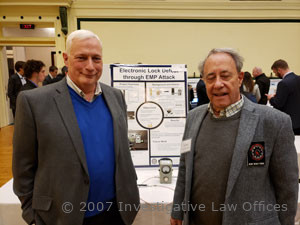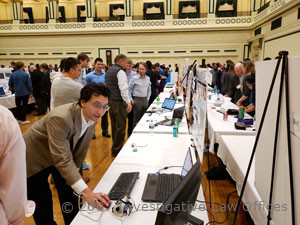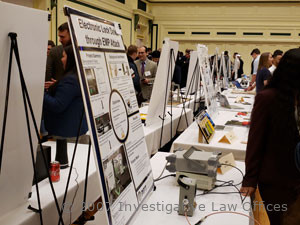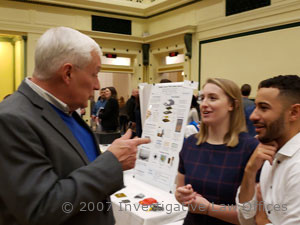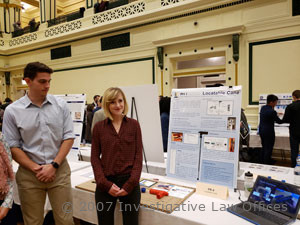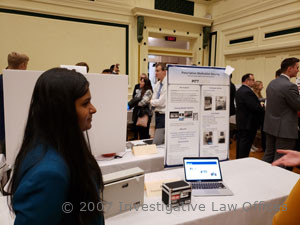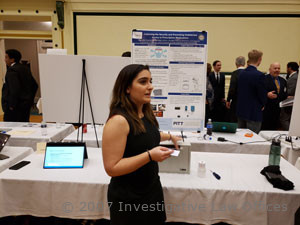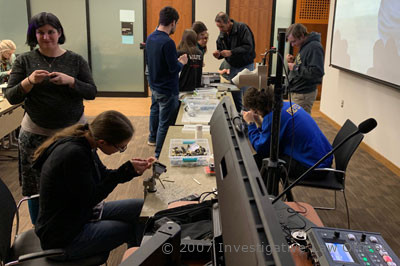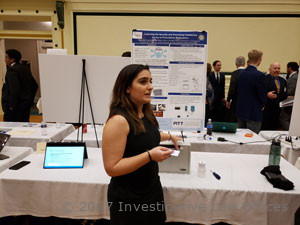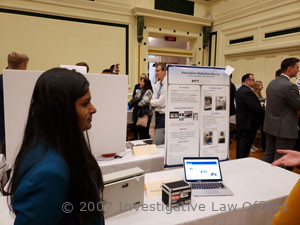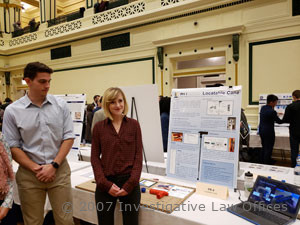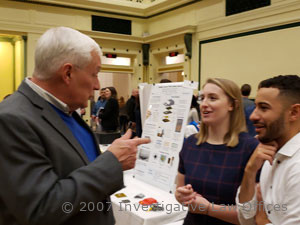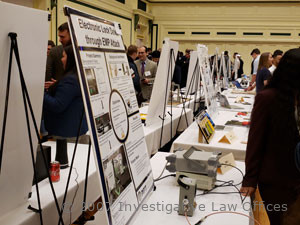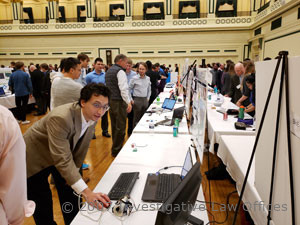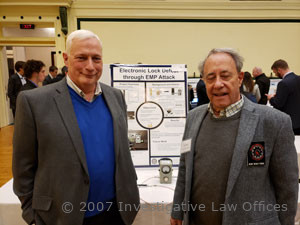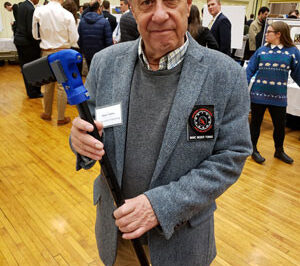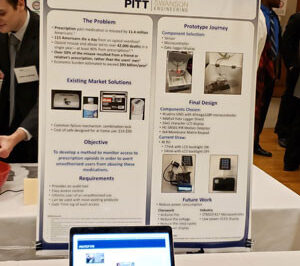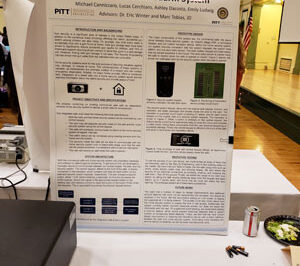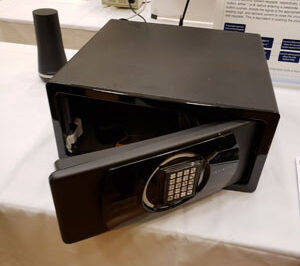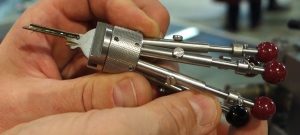Security Labs and the Security Engineering Lab at the University of Pittsburgh held its semi-annual seminar for students and faculty for three hours discussing different security issues and lock designs, including defective products. Students were able to open the CleverMade packaf
SECURITY ENGINEERING LAB AT UNIVERSITY OF PITTSBURGH
University Of Pittsburgh Security Engineering Lab
Mechanical and electronic locks, access control systems, and alarms often form the first defense in the protection of people, facilities assets and critical information. An in-depth understanding of the design fundamentals of these various systems and their potential design vulnerabilities is critical for engineering graduates, especially when employed by lock and security hardware manufacturers and government agencies.
The integration of IT, access control, and locking systems by commercial, educational, and government facilities makes it imperative that graduate engineers have the requisite knowledge to assess the multiple issues that can affect the internal security of their organizations if they have such responsibilities. Unfortunately, most mechanical engineering programs teach students how to design different products and systems, but not how to break them. The two disciplines are interrelated and of equal importance, and one cannot exist without the other.
Investigative Law Offices recently announced the funding and development of the Pitt Security Engineering Lab and the sponsorship and co-instruction of the Product Realization and Design course at the University of Pittsburgh’s Swanson School of Engineering. Clients of Security Labs will provide real-world security projects for students to work on and develop, thereby teaching theories and practical knowledge in the design and defeat of various security systems, both cyber and physical.
The lab, located in Benedum Hall of Engineering on the Pitt campus, will allow students a hands-on environment with the appropriate equipment and resources to actively work on different locking mechanisms and systems and develop solutions and products to real-world problems for lock and security hardware manufacturers. Students who participate in the course will use the lab to develop solutions for their assigned projects.
“Many locks now incorporate sophisticated electronics that also utilize RFID, NFC and Bluetooth wireless technologies,” noted Marc Tobias, company founder. “Security Labs is collaborating with a digital security laboratory that specializes in IoT analysis so that their expertise can assist students to gain an in-depth understanding of the methodology of compromising interconnected and electronic credential-based devices and systems.”
The Pitt Security Engineering Lab will be open to all students that participate in the elective course taught by Professor Rick Winter, Mr. Tobias, and Tobias Bluzmanis. Certain projects, because of their impact upon the security of commercial and government facilities, will require registration to access the lab, and the execution of an NDA and in some cases, an assignment of any potential IP.
Investigative Law offices and its Security Lab has provided security consulting services to many of the largest lock and security hardware manufacturers in the world for more than twenty years. Messrs. Tobias and Bluzmanis are recognized as physical security experts for locks, on a global basis. Their responsibility is to analyze a variety of locks, safes, and security systems for vulnerabilities that would allow them to be attacked covertly and often opened in seconds. The development of secure hardware and software that protects every sector of society is complicated and encompasses sophisticated issues of engineering, design, manufacturing, intellectual property, regulatory, Standards, liability, and complex legal issues.
Tobias and Bluzmanis have completed hundreds of investigations for their clients that resulted in the compromise of the most sophisticated locking systems. They have lectured throughout the world at universities, law enforcement agencies, and at DefCon and similar conferences. Mr. Tobias has authored seven books and has received nine U.S. patents relating to lock design and bypass, while Mr. Bluzmanis holds five patents and is co-author of the book “Open in Thirty Seconds.” He has been a practicing locksmith for thirty-five years.
Security Engineering Lab At The University Of Pittsburgh
Senior engineering students at Pitt are working on several different projects in the Security Engineering Lab in the Swanson School of Engineering at Pitt. The lab is sponsored by Marc Weber Tobias and Tobias Bluzmanis with Security Laboratories. Projects include high security lock design, high-tech canes for the elderly, protective devices for portable electronic devices, integrated alarm safes, police pole-cams for conducting searches in difficult to reach areas, and many other projects relevant to security designs. The course is taught by Professor Eric Winter, who is a senior industrial design engineer. Students learn product design and realization issues and have a physical laboratory with sophisticated test equipment to work with in their projects. Security seminars are given twice a year for an evening of lock picking basics, power point presentations, and pizza for staff and students from Pitt and Carnegie Mellon University.
Read the articles about the lab.
Unlocking Potential _ Pitt Magazine _ University of Pittsburgh
Students ‘break in’ to security engineering at Pitt – The Pitt News
Science Expo 2018 At The University Of Pittsburgh Engineering: Projects
A semi-annual Science Expo is held at the University of Pittsburgh by the Swanson School of Engineering. Students demonstrate and discuss their projects in mechanical, electrical, computer, and biomedical engineering for the semester.
The Security Engineering Lab is sponsored by Investigative Law Offices and Security Labs to teach senior engineering students about product design and reverse engineering. The focus is on security and the students work different problems for Security Labs and its clients, which are primarily lock manufacturers worldwide.
Projects in 2018 included a high-tech cane for the elderly, secure prescription drug containers, and an integrated alarm-safe for home use, and a device to protect portable electronic devices such as computer laptops. Watch the interviews conducted with students for these projects.
Combined Alarm-Safe integrating a wireless alarm system with a small electronic safe.
Secure prescription drug container: team 1
Secure Prescription drug container: Team 2
High-tech location-enable cane for the elderly
Science Expo 2018 Photo Gallery: University Of Pittsburgh
Science Expo 2018 at the University of Pittsburgh School of Engineering
University Of Pittsburgh Science Expo 2020: Security Projects
Photo gallery from the Security Engineering Expo at the University of Pittsburgh 2020
Science Expo 2018: Security Medallion Project University of Pittsburgh
The Security Engineering Lab at the University of Pittsburgh worked on the development of a “Medallion” stick-on device to protect portable electronic devices such as laptops. This is based upon the design that is described in a patent that was issued to Marc Tobias for this device. Two teams worked on the project: one electronic and one mechanical. Watch the video interviews of team members at the 2018 Science Expo in Pittsburgh, where different teams for the Engineering school compete for best project in mechanical engineering, Biomed, electrical engineering and other disciplines. The design of the Medallion, which is 3″ diameter device, contains both mechanical and electronic security components to protect against theft, and relies upon the Kensington cable lock as one of its core protective measures.
Security Medallion Project: Science Expo 2018 at University of Pittsburgh School of Engineering
Senior engineering students in the Security Engineering Lab and Project Realization course at the School of Engineering at the University of Pittsburgh had a project to develop a security medallion to protect portable electronic devices. There were two teams: one dealt with mechanical issues, and one with the software and hardware. This project involved the use of Kensington cable locks to protect laptops from theft.
A patent was issued to Marc Tobias for the Medallion and others are currently in process.
Watch the interview with Marc Weber Tobias and students describing their part of the project.


